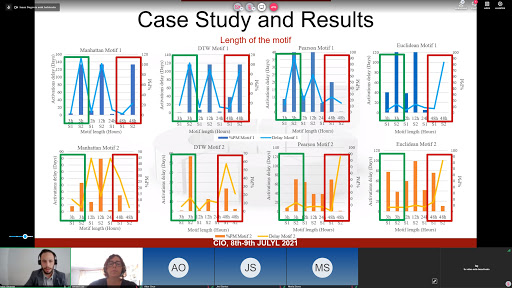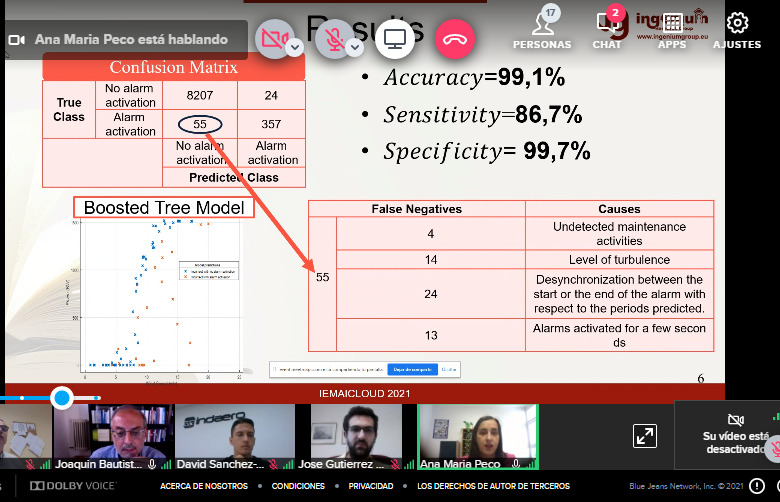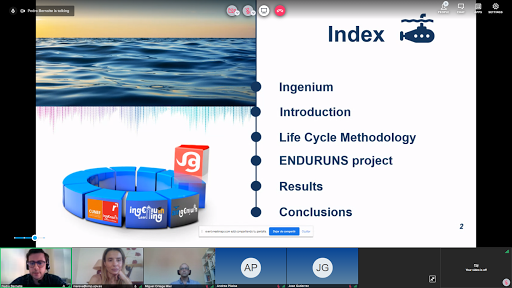Ingenium Group is participating in “Congreso de Ingenieria de Organización” CIO 2021 (15th International Conference on Industrial Engineering and Industrial Management) on July 8-9th. This conference is promoted by ADINGOR (Association for the Development of Organizational Engineering), whose objective is to contribute to industrial development.
Isaac Segovia, Alba Muñoz del Rio and Prof. Fausto Pedro García Márquez, have presented «Wind Turbine Alarm Management with Motif Search applied in Internet of the Things Platform». Artificial intelligence algorithms with complex trainings and high computational costs are traditionally employed. This paper proposes motif analysis using an Internet of the Things platform to study large time series data for wind turbine analysis. The approach employs the periods with more influence in the alarm development and applies motif search. It is presented a real case study analysing interest periods with motif methodology and different algorithms and parameters of the operation, with high accuracy in the results.

Ana María Peco, Prof. Fausto Pedro García Márquez and Isaac Segovia have presented «False Alarm Detectoin in Wind Turbine Management by Ensemble Trees». The main novelty proposed in this work is the use of different types of the ensemble trees algorithm for false alarm classification and detection in wind turbines. A real case study is analysed to validate the approach. The results indicate an accuracy of 99,1%. The sensitivity and the specificity are 86,7% and 99,7%, respectively. These values indicate that the method is suitable for false alarm detection and identification.

Pedro Bernalte and Prof. Fausto Pedro García Márquez have presented «Life cycle Assessment of Autonomous Surface Vehicles». The use of marine vehicles has been increasing in the last few years due to the marine industry growth. The advancements in the field of robotics and unmanned systems have made possible the development of marine autonomous vehicles. These devices are used for several applications in different fields with the aim of monitoring, exploring or mapping the marine and submarine environment. The autonomous surface vehicles are generally equipped with modern communication and navigation systems, which implies an important investment. For these reasons, the production process and life cycle of these vehicles must be carefully studied in order to know the durability and associated cost of the vehicle performance. In this paper, it is exposed the life cycle assessment of an autonomous surface vehicle developed in ENDURUNS project. This European initiative tries to develop a green energy and long endurance vehicle to explore the offshore seabed. Through this study, it is possible to know the emissions and ecological footprint of these vehicles, and also to detect the waste contribution of it.
